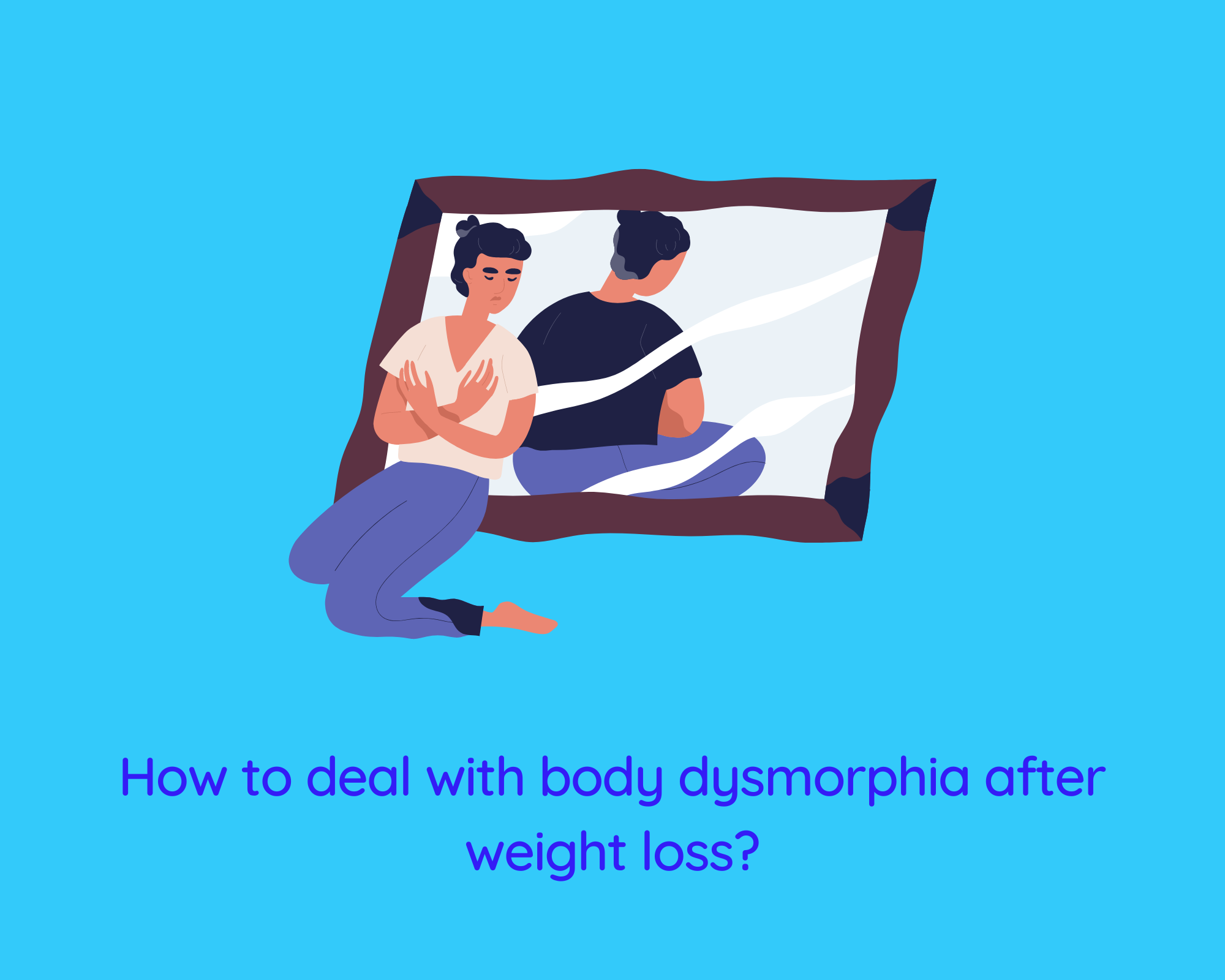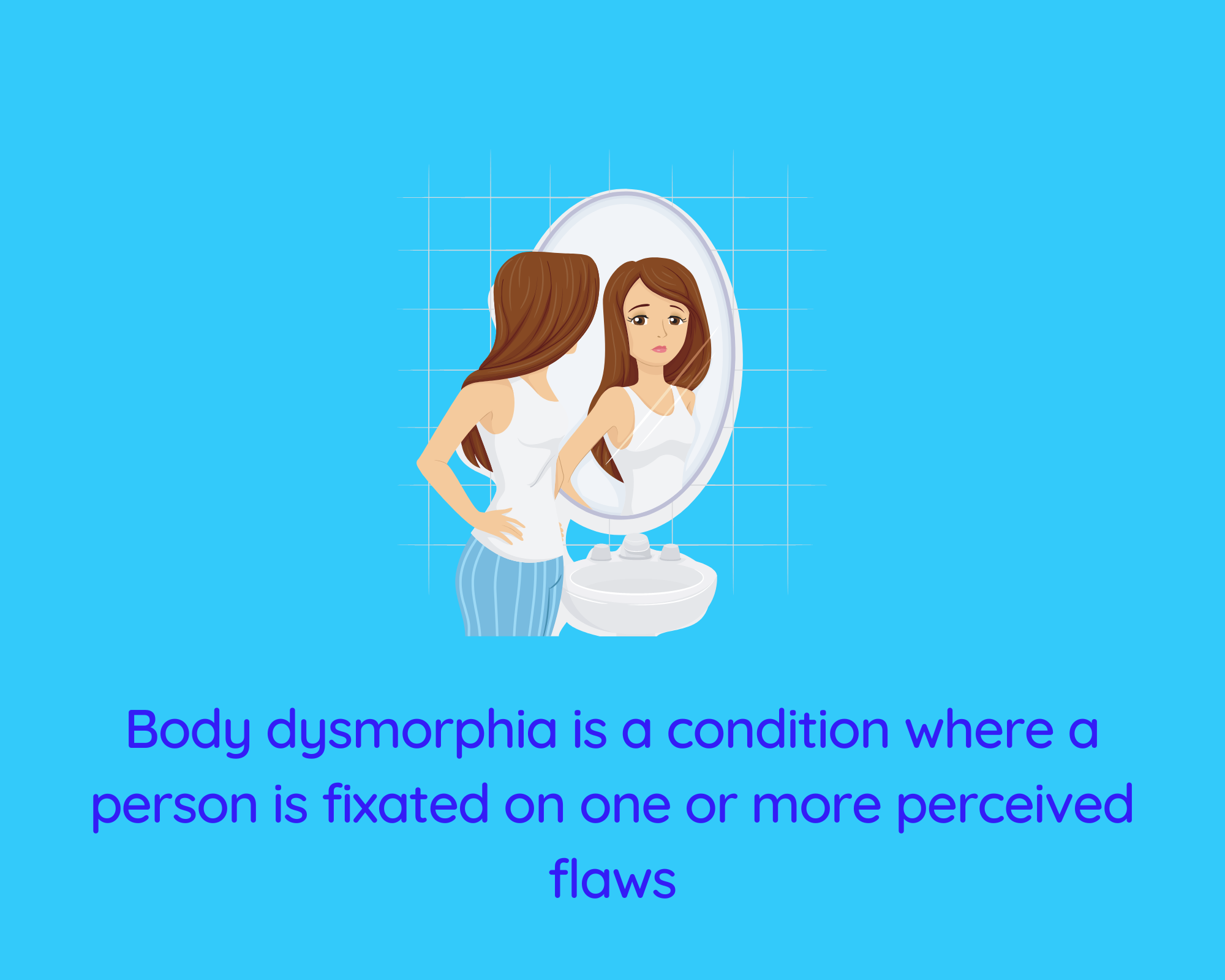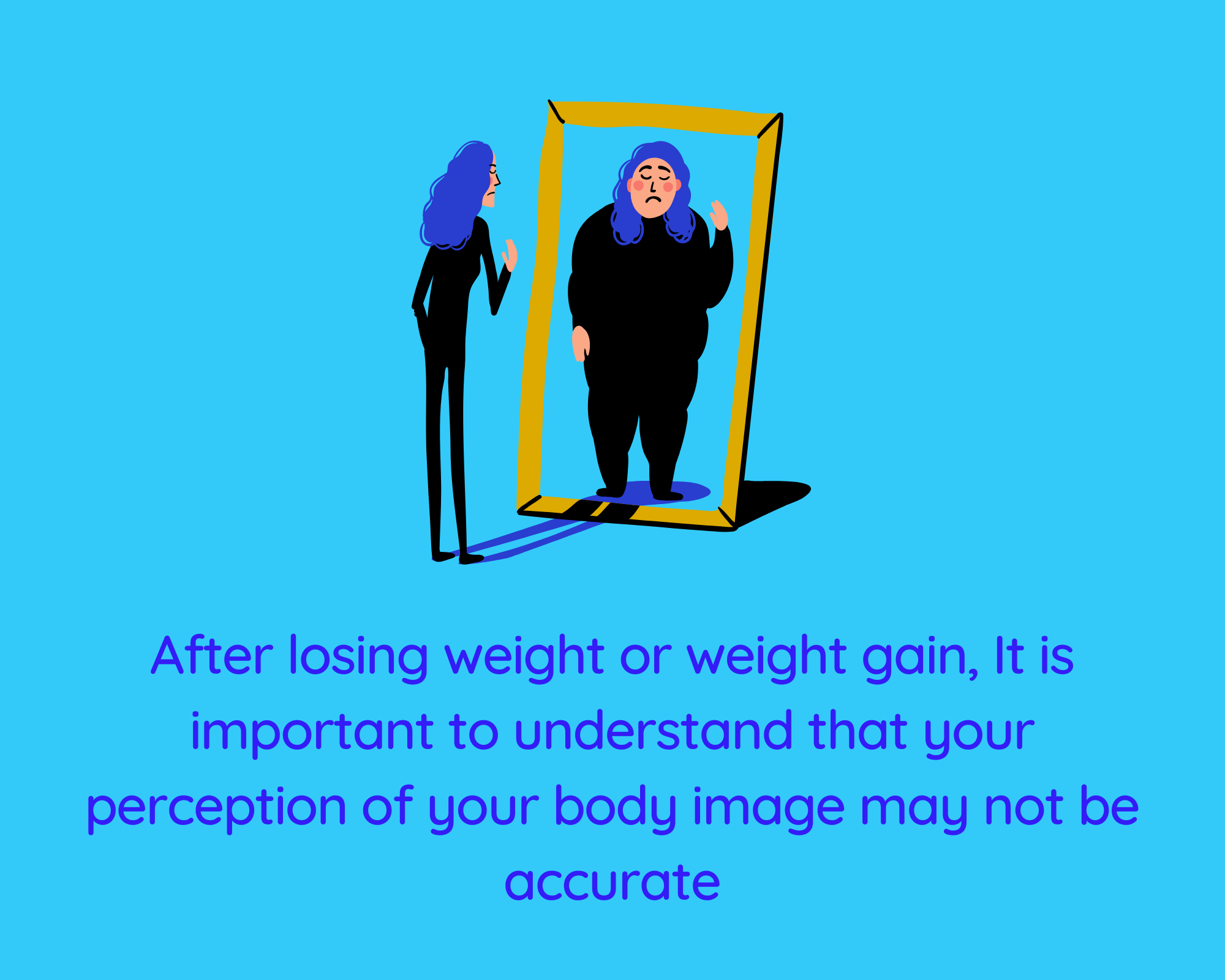How to deal with body dysmorphia after weight loss? Everything you should know!
Body dysmorphia is a condition where a person is fixated on one or more perceived flaws. For someone who has recently undergone significant weight loss, this can be a major source of anxiety and distress. If you find yourself struggling with body dysmorphia after losing weight, there are some things you can do to help ease your symptoms.

Your body image might not be accurate.
After losing weight or weight gain, It is important to understand that your perception of your body image may not be accurate. If you are fixated on a physical flaw that others cannot see, or that is not there, this can be a sign of body dysmorphia. If you are unsure whether or not your perceptions are accurate, it may be helpful to consult with a therapist or other mental health professional. They can help you to understand your thoughts and feelings about your body more objectively.

Look at the positive changes: you lost weight!
Try to focus on the positive changes that have occurred as a result of your weight loss. For example, if you have lost weight and are now able to participate in activities that you previously could not, this can be a positive thing to focus on. Additionally, even if you are still struggling with your weight, try to focus on the progress you have made rather than any remaining flaws.
Body dysmorphic disorder: help is available!
It is important to accept your body as it is. This may be difficult, but it is an important step in managing body dysmorphia. If you are unable to accept your body, it can be helpful to seek out professional help. A therapist can assist you in exploring your thoughts and feelings about your body and help you to develop a more positive relationship with it.

Take care of yourself physically and mentally!
Fourth, make sure to take care of yourself both physically and mentally. This includes eating a healthy diet, getting regular exercise, and getting enough sleep. Additionally, it is important to find healthy ways to cope with stress. When you are feeling good about yourself physically and mentally, this can help to ease body dysmorphia symptoms.

Conclusion:
If you are struggling with body dysmorphia after weight loss, there are some things you can do to ease your symptoms. Remember that your perception of your body may not be accurate, focus on the positive changes that have occurred as a result of your weight loss, accept your body as it is, and take care of yourself both physically and mentally. If you are unable to manage your symptoms on your own, seek out professional help. With the proper treatment, you can learn to love and accept your body just as it is.
















